A Sermon for Sunday, November 24, 2019. Emory Presbyterian Church. Christ the King Sunday. Colossians 1:11-20 and Luke 1:68-79
There once was a man who skipped worship at his family’s Presbyterian church every Sunday during hunting season, as it had been his ritual for 15 years. On this particular Sunday, as the man rounded the corner on a perilous twist in the trail, he collided with a bear. The impact sent him tumbling down the hill.
During the fall, the rifle went one way and he went the other, landing on a rock and breaking both of his legs.
Unable to move as the bear charged toward him from the top of the hill, the man prayed: “Oh, Lord, I’m so sorry for skipping worship all these years to come out here and hunt. I swear I will be a faithful churchgoer if you could just do something about this bear . . . Please make a Christian out of that bear that’s coming at me. I would be forever grateful to you Lord! Please help!”
 That very instant, the bear fell to its knees, clasped its large paws together and began to pray aloud right at the man’s feet. “Dear God” the bear said, “Thank you for this food I am about to receive!”
That very instant, the bear fell to its knees, clasped its large paws together and began to pray aloud right at the man’s feet. “Dear God” the bear said, “Thank you for this food I am about to receive!”
Thank you. Two short words that form a simple phrase which we’ve known and used all of our lives—a cherished sentiment that can be understood on a deeper level as thankfulness, thanksgiving, gratitude and grace. But like the hunter in the story, there are some folks who take “thank you” or gratefulness for granted, promising to be thankful only during or after a predicament.
Like the person, who after a wild Saturday night of drinking, tightly hugs the toilet early on a Sunday morning and cries: “Please God, make this misery end and I’ll never ever drink again.” And immediately after getting sick, he says, “Oh thank you, God. Thank you!
Or the motorist who, after causing a minor traffic accident in which no one was hurt says, “Thanks be to God, this could’ve been a lot worse!”
Sometimes, folks don’t wait till something bad happens to say thank you. Instead, a person might utter the expression when they’re in a rush as an automated or trained response, never actually stopping to ponder why they should be thankful.
Like the person who is headed to an important interview in downtown Atlanta but gets lost and has to duck into a restaurant to ask for directions. As soon as help is given, the job seeker, anxious to make the interview on time, rushes out the door with a fleeting, “thanks.”
And then, there are the commercial retail and advertising companies who have mastered the art of skipping thankfulness completely! Walk into any store or mall and one will find Christmas decorations and products that have been on display since before Halloween! Open up the newspaper sales pages; flip on the TV to commercials; or go online and a person will be bombarded with ads about the latest and greatest Christmas sale and gift. Before the turkey feast is fully digested, we are consumed by tantalizing Black Friday sales.
Thanksgiving Day itself is ignored for the most part, I suppose, because it’s dull when compared to Halloween and Christmas. No glitz and thrills. No bold and striking colors. No flashing lights or fun songs. No exciting presents. Just boring orange, yellow and brown leaf decorations, a brown turkey, yellowy-orange side-dishes, beige stuffing and beets (blech).
There’s just not much profit and manufactured happiness to be gained from humbly giving thanks in our post-modern self-centered consumerist culture of power and entitlement.
However, maybe it’s the lack of gratitude we see in our culture that has prompted people to give thanks more on their social media accounts for the small and large things in their life, has encouraged many to make daily gratitude lists and has inspired folks to say more prayers of thanksgiving while in worship or at home.
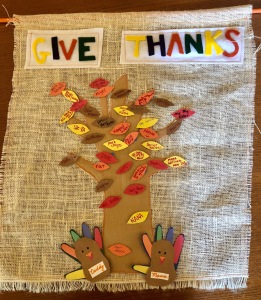 Several years ago, my wife Elizabeth introduced our family to a new way of showing gratitude during the month of November by making a “Give Thanks” banner with a felt leafless tree in the center. Each night after dinner, we all share what we are thankful for and write it down on a red, orange, brown or green construction paper leaf. Then we tape each leaf onto the tree. Over time, the tree (and each of us) has become more beautiful and vibrant with these leaves that express thankfulness to God for family, best friends, laughter, Nana, dragons, church, cartoons, pork chops, and yard helpers.
Several years ago, my wife Elizabeth introduced our family to a new way of showing gratitude during the month of November by making a “Give Thanks” banner with a felt leafless tree in the center. Each night after dinner, we all share what we are thankful for and write it down on a red, orange, brown or green construction paper leaf. Then we tape each leaf onto the tree. Over time, the tree (and each of us) has become more beautiful and vibrant with these leaves that express thankfulness to God for family, best friends, laughter, Nana, dragons, church, cartoons, pork chops, and yard helpers.
The Rev. Lynne M. Baab, a Presbyterian minister in Seattle writes that prayers of thankfulness “transform us because they help us develop habits of noticing God’s work in our lives.” She says further:[1]
These prayers teach us to pay attention to the good gifts of God that surround us. We develop habits of gratitude, and these habits make our hearts more open to God’s presence in our lives…When we thank God, we acknowledge that we love God and that we are grateful for our relationship with God. Expressing our thanks to God also acknowledges our dependence on God.
“Developing habits of gratitude” is important for Christians to acknowledge and practice. The prolific Old Testament scholar Walter Brueggemann reminds us that:[2]
“It is characteristic in American Thanksgiving that we look back and remember the pilgrims and God’s providential care for them. Lodged next to Advent, Thanksgiving is not only for remembering; it waits and it expects. Faithful gratitude believes that the God who has given good gifts has more good gifts to give. While God’s gifts are welcome…they do disrupt… God’s gift of mercy interrupts our hard-hearted indifference. God’s gift of justice exposes our systemic injustice.”
God’s gift of mercy and justice—which disturbs our apathy and reveals a system of inequality, prejudice and oppression—is none other than the God-in-the-flesh Jesus, “the king of kings and the lord of lords.” It is quite fitting that Thanksgiving Day falls between Christ the King Sunday and the start of the Advent Season. On its website, the PC(USA) explains:[3]
“The church gives thanks and praise for the sovereignty of Christ, who is Lord of all creation. The festival of Christ the King ends our marking of Ordinary Time…and moves us to the threshold of Advent, the season of hope for Christ’s coming into our lives. Christ’s truth judges falsehood…. In Christ, all things began and in Christ all things will be fulfilled. As sovereign ruler, Christ calls us to a loyalty that transcends every earthly claim on the human heart. To Christ alone belongs the supreme allegiance in our lives.’”
As I shared with the children earlier in the service, Christ the King does not fit our earthly traditions, experiences, ideas and images of royalty, power and prestige.
 Jesus is not a king like the Israel monarchs or the Roman emperors of his time nor is Jesus like any crowned figurehead, dictator, world leader or president that has existed throughout history.
Jesus is not a king like the Israel monarchs or the Roman emperors of his time nor is Jesus like any crowned figurehead, dictator, world leader or president that has existed throughout history.
Jesus is not a king who comes riding in on a horse, brandishing a sword or a riding atop a tank, sporting a machine-gun as some mega church pastors and Google Images would have you believe.
Jesus is not a bloodthirsty revenge seeking warrior king or a ruthless drug kingpin as some aspects of pop culture depict Jesus to be.
No, Jesus is the King of love and mercy because Jesus is the embodiment of God’s grace-filled sovereignty in our world and lives. And this all-knowing, almighty, mysterious King arrives not as a power-hungry, oppressive deity seeking to wipe out sinners and evildoers. But as a small defenseless child born into poverty—no less a cow trough in the poorest part of town.
A child that grows into a man who breaks bread with outcasts, heals the sick, visits the prisoner, and welcomes the marginalized. A man, both fully human and fully divine, who exists, says the writer of Luke’s gospel, “to give light to those who sit in the darkness and in the shadow of death, to guide our feet into the way of peace.” A Messiah who transforms the world through the supreme act of unconditional, selfless, suffering love.
That is the King Jesus whom we recognize and give thanks for being in our lives and world. In his letter to the Colossians, Paul reminds the early Christian community of the sovereignty of God in Christ, saying:
He has rescued us from the power of darkness and transferred us into the kingdom of his beloved Son, in whom we have redemption, the forgiveness of sins. He is the image of the invisible God, the firstborn of all creation; for in him all things in heaven and on earth were created, things visible and invisible, whether thrones or dominions or rulers or powers-all things have been created through him and for him. He himself is before all things, and in him all things hold together. He is the head of the body, the church; he is the beginning, the firstborn from the dead, so that he might come to have first place in everything. For in him all the fullness of God was pleased to dwell, and through him God was pleased to reconcile to himself all things, whether on earth or in heaven, by making peace through the blood of his cross.
Commenting on this scripture text, Mariam Kamell, a New Testament scholar in Canada, says:[4]
Because of the cross, we can live in great confidence and joy that all the things that are so wrong will be made right and that Christ has already begun putting all things right. By inviting us into his kingdom, we are partners and co-inheritors of all things made right, and so we should work for justice and the righting of wrongs; we should work for peace and reconciliation, but we do these things because we know that all of this will be done in Christ.
 Over the last few years, there has been renewed interest in one person in particular who was highly regarded for their work for justice, righting of wrongs, peace and reconciliation—a Presbyterian pastor and children’s educator known as Mr. Fred Rogers. On Friday, Elizabeth and I saw the new feature film on Roger’s life, A Beautiful Day in the Neighborhood. [5]
Over the last few years, there has been renewed interest in one person in particular who was highly regarded for their work for justice, righting of wrongs, peace and reconciliation—a Presbyterian pastor and children’s educator known as Mr. Fred Rogers. On Friday, Elizabeth and I saw the new feature film on Roger’s life, A Beautiful Day in the Neighborhood. [5]
A couple of scenes stood out. The first was one in which Rogers (played by actor Tom Hanks) kneels next to his bed at nighttime and, notebook in hand, prays for every name he’s written down that day—his family, his co-workers, people he encountered through the show and random folks he met on the street.

And the second—based on his 1997 acceptance speech for the Lifetime Achievement Emmy Award—Rogers asks a magazine writer, while the two are having lunch in a crowded restaurant, to take 10 seconds to think of all the people that helped him into becoming.[6]
Rogers believed that the work of justice, righting wrongs, and reconciliation begins with the practice of gratitude. And when we adopt a habit of gratitude for ordinary acts of kindness and experiences of mercy, we are ultimately giving thanks to the God in Christ, the King of our hearts, who mends all that is broken and continues to form us into becoming.
We join God in the work of restoration because we have been formed and loved into becoming. And God has placed others in our lives to love us into becoming more of who we are created to be and to remind us to whom we belong.
For this we give thanks again and again and again.
Let us then take ten seconds, right now, to think of all those who have helped us become who we are …Ten seconds of silence.
(10…)
(9…)
(8…)
(7…)
(6…)
(5…)
(4…)
(3…)
(2…)
(1…)
Thanks be to God.
Thanks be to Christ the King.
Amen.
[1] “Gratitude as a Spiritual Discipline” by Lynne M. Baab, The Thoughtful Christian: Faithful Living in a Complex World, www.thethoughtfulchristian.com, 2006
[2] “God’s Reign Cracks into Our World” by Walter Bruegemann, Sojourners magazine, November 2010.
[3] http://www.presbyterianmission.org/ministries/worship/christ-king-reign-christ/
[4] https://www.workingpreacher.org/preaching.aspx?commentary_id=1849
[5] Recommended articles on Fred Rogers:
https://www.theatlantic.com/magazine/archive/2019/12/what-would-mister-rogers-do/600772/
https://www.theatlantic.com/politics/archive/2015/11/mister-rogers-saint/416838/
https://time.com/5733017/a-beautiful-day-in-the-neighborhood-true-story/
https://www.faithgateway.com/mister-rogers-prayer/#.XdrXyy2ZN0t
[6] https://www.mentalfloss.com/article/27237/mister-rogers-and-his-lifetime-achievement-emmy-get-ready-cry-work


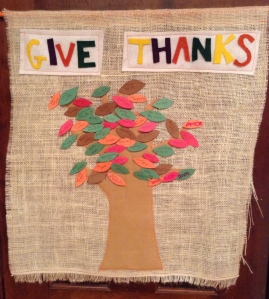

 Walls International Guest House
Walls International Guest House


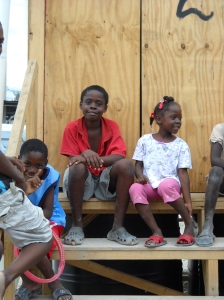
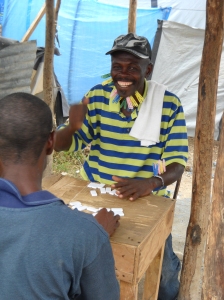
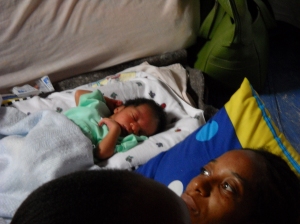

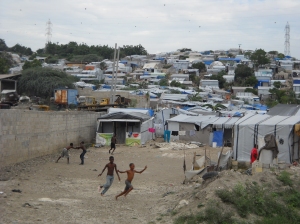


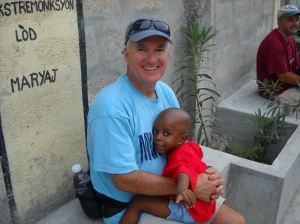
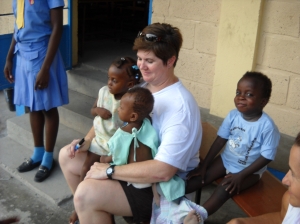

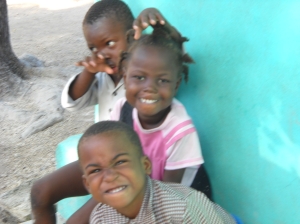
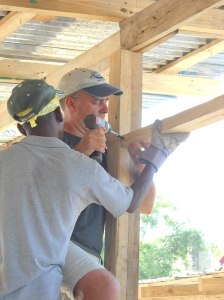
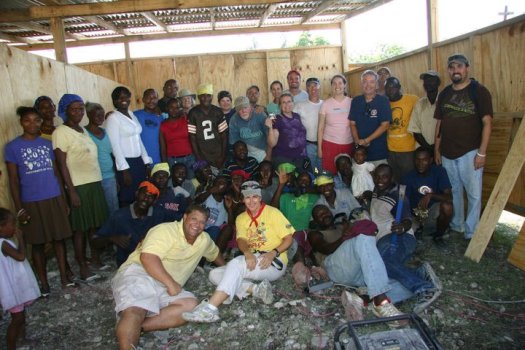








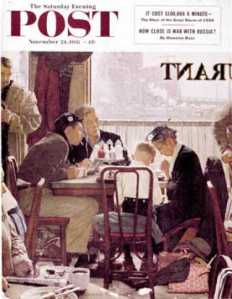
You must be logged in to post a comment.